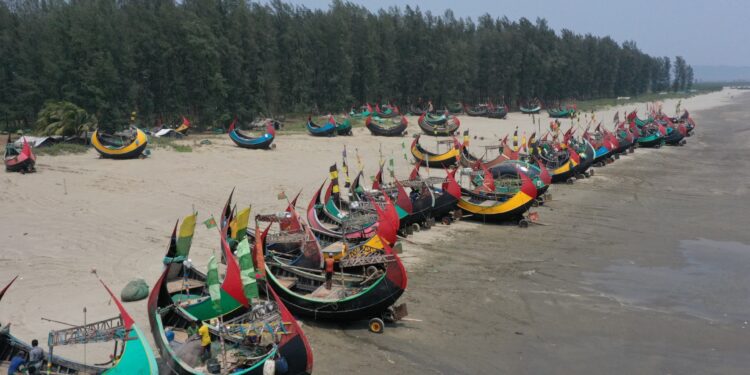Indians in West Bengal are facing a potential shortage of hilsa, one of their most beloved foods, as the state’s biggest celebration, Durga Puja, approaches in October.
These concerns come after Bangladesh, the world’s largest producer of hilsa, tightened its measures to prevent fish smuggling to India, re-imposing an old ban on fish exports, according to Bloomberg.
Strengthening the export ban
According to Farida Akhtar, advisor to the Ministry of Fisheries and Livestock in Bangladesh, the new government has intensified border control to ensure that hilsa remains in the domestic market.
“A lot of fish was being transported from Bangladesh to India despite the ban. This time we will not allow the fish to cross the border,” Akhtar said.
Hilsa is the national fish of Bangladesh and is a luxury food that only the rich and middle class of the country can afford.
Bangladesh’s hilsa production is about 600,000 tons per year, which constitutes about 12% of the country’s total fish production and contributes about 1% to the GDP.
In the past years, the Bangladeshi government has allowed the export of 3,000 to 5,000 tons of hilsa annually to India during the Durga Puja festival, but this year the government has decided to impose a complete ban due to shortage of production.
Rising prices in the local market
Despite the export ban, hilsa prices have risen significantly in Bangladeshi markets. A 1.5 kg hilsa fish is priced at Tk 1,800 ($15), while a 1.2 kg fish is priced at around Tk 1,600.
This rise in prices is attributed to the lack of fishing, as some fishermen indicated that harsh weather conditions prevented them from going to sea for several months.
The repercussions of “Hilsa Diplomacy”
It is worth noting that the “Hilsa Diplomacy” policy was part of former Bangladeshi Prime Minister Sheikh Hasina’s strategy to strengthen relations with India, according to Bloomberg.
In the past, Bangladesh allowed hilsa to be sent as a “gift” during the Durga Puja festival. But the current government has taken a more conservative stance, focusing on providing fish for the domestic market.
Hilsa is not just a fish in Bangladesh and India, it is considered a part of Bengali culture and is especially celebrated in the cuisine.
It is prepared in many ways, such as steaming with mustard paste or frying with spices, and is a popular dish on holidays and special occasions.
Bengali food historian and author Chitrita Banerjee spoke to Bloomberg about the importance of hilsa in Bengali culture, noting that it is not only a symbol of fine dining, but is considered the “prince of fishes” for its beauty and distinctive taste.



